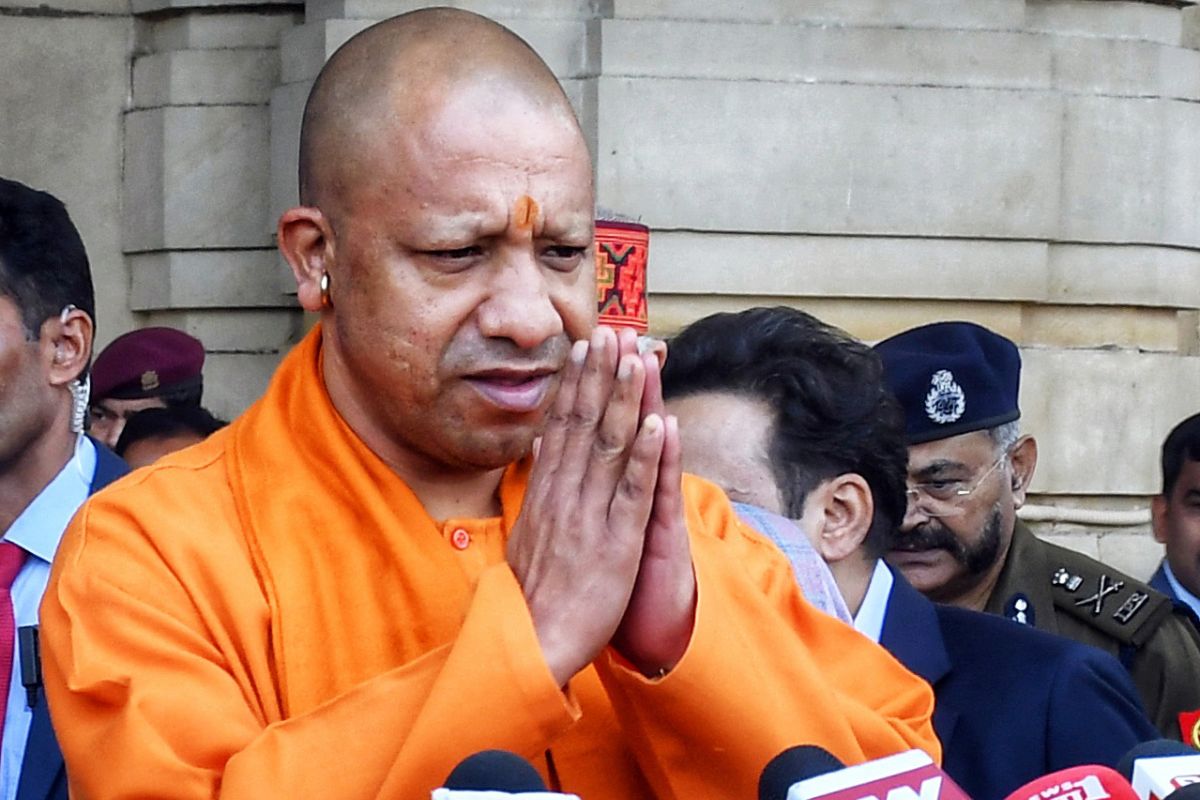INDIA bloc aims to divide the country on religious ground: UP CM
Addressing the media at his official residence, the Chief Minister said that the BJP had entered the elections with the issues of development, security, and governance.
Of notable significance is the government’s efforts to establish Ayodhya as the state’s inaugural solar city. Progress in this endeavour is well underway, with significant strides witnessed in the installation of solar infrastructure.

Yogi allots portfolios to newly-inducted ministers in UP
In a bid to propel the adoption of solar energy across Uttar Pradesh, the Yogi Adityanath government has unveiled plans to transform 17 major cities of the state into solar cities, alongside the revered cities of Ayodhya and Varanasi. Following the development of solar cities, the government will work towards building solar villages on the same pattern in the near future.
Of notable significance is the government’s efforts to establish Ayodhya as the state’s inaugural solar city. Progress in this endeavour is well underway, with significant strides witnessed in the installation of solar infrastructure. Concurrently, preparations are underway to inaugurate a large-scale solar plant in Varanasi, further cementing Uttar Pradesh’s status as a front runner in the solar energy sector.
Answering a query in the Uttar Pradesh Legislative Assembly on Wednesday, Energy Minister AK Sharma underscored the state’s commitment to solar energy advancement and revealed that Uttar Pradesh is poised to emerge as a leader in the solar energy domain, with initiatives already gaining momentum.
Advertisement
“Notably, Ayodhya stands at the forefront of these efforts, with the successful commencement of solar energy production. A remarkable 14 MW of solar energy is being generated in Ayodhya while an additional 40 MW capacity has already been installed and the production is poised to start soon”, he said.
The Solar City project in Ayodhya encompasses the installation of over 2,500 solar-powered streetlights, underscoring the city’s commitment to sustainability. Chief Minister Yogi Adityanath inaugurated a solar boat in Ayodhya. Ayodhya also boasts solar-powered amenities such as ATMs and solar trees adorning its 40 intersections, epitomising the city’s embrace of renewable energy solutions.
With Ayodhya blazing a trail in solar energy adoption, the focus now shifts to Varanasi, where plans are afoot to install rooftop solar plants across government buildings. Under the visionary leadership of Prime Minister Narendra Modi and Chief Minister Yogi Adityanath, Varanasi is slated to witness the installation of 25,000 rooftop solar plants, positioning it as a beacon of solar innovation.
As progress unfolds in Varanasi, efforts are underway to replicate the successful solar city model in 17 metropolitan cities statewide, drawing inspiration from the transformative initiatives witnessed in Ayodhya and Varanasi. Additionally, concerted endeavours are being made to extend solar infrastructure to rural areas, thereby democratising access to clean energy solutions across Uttar Pradesh.
Recognising the pivotal role of charging infrastructure in accelerating electric vehicle (EV) adoption, plans are underway to establish charging stations across the state. The imminent rollout of a comprehensive road map for charging station deployment underscores the government’s commitment to facilitating EV adoption on a mass scale. With a robust charging infrastructure in place, Uttar Pradesh is poised to propel the widespread adoption of electric vehicles, fostering a sustainable mobility ecosystem.
In a bid to empower outsourced workers, the Uttar Pradesh Power Corporation Limited (UPPCL) has rolled out the Mukhyamantri Shikshuta Protsahan Yojana. Under this scheme, outsourced workers stand to benefit from performance incentives based on revenue growth. With an emphasis on enhancing employee welfare, the UPPCL has increased the gratuity amount for workers engaged in departmental work, underscoring its commitment to the well-being of its workforce.
Furthermore, if there is an increase in revenue (through rate) corresponding to the electricity supplied to these sub-centres in the year 2024-25, an additional amount of 10 per cent per month (totalling 20 per cent incentive) will be provided to the workers in the year 2025-26. The amount of gratuity in case of death during departmental work has been increased by the corporation from Rs 5 lakh to Rs 7.50 lakh.
Meanwhile, in response to another question, the minister mentioned that the Consumer App, launched for the initiation of the trust billing system in the state, is gaining popularity. Currently, 2,95,000 consumers are using this app. The Consumer App was launched in UPPCL on October 10, 2023. In the year 2023-24, payments totalling Rs 7,23,97,381 were made through the app by 30,704 consumers.
Responding to questions related to cases of electricity theft, he informed that from April 1, 2023, to January 31, 2024, FIRs have been registered in 1,25,047 cases of electricity theft in the state. Revenue has been determined in 1,22,990 cases of electricity theft while notices under Section 3 have been served in 19,543 cases, and under Section 5 in 5,869 cases. Under the OTS scheme, solutions have been provided for 13,995 cases of electricity theft.
Advertisement